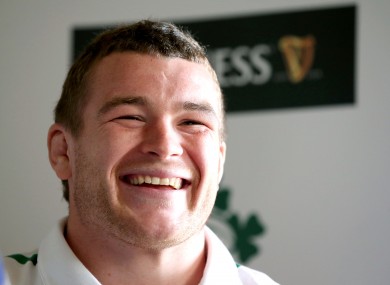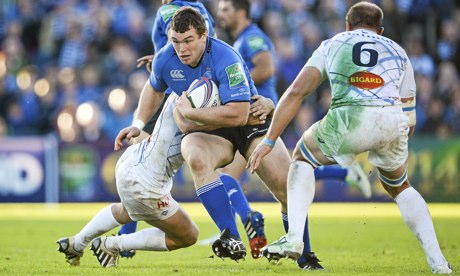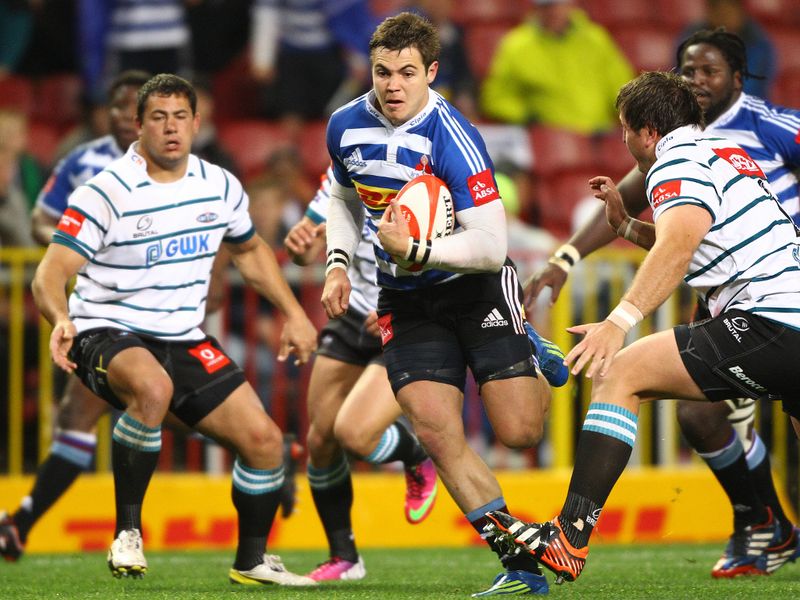This weekend will bring a close to a wonderful season of domestic rugby in New Zealand. All sides in this competition produced some fabulous running rugby with a high standard of skill from all players. And now all that's left to be decided is who will be promoted to the Premiership, and who will claim the Premiership crown
Championship Final:
Tasman Makos 26 v 25 Hawke's Bay, Friday 25th October 7.35am
Tasman:
1.Tim Perry, 2.Quentin MacDonald, 3. Sila Puafisi, 4.Alex Ainley, 5.Joe Wheeler, 6.Gary Redmond, 7.Shane Christie (captain), 8.Liam Squire, 9.Billy Guyton, 10.Marty Banks, 11.Mitchell Scott, 12.Tom Marshall, 13.Kieron Fonotia, 14.Bryce Heem, 15.James Lowe.
Reserves: 16.Francis Smith, 17.Siua Halanukonuka, 18.Tevita Cavubati, 19.Vernon Fredericks, 20.Mark Swanepoel, 21.Andy Symons, 22.Robbie Malneek.
Hawke's Bay:
1.Max Lahiff, 2.Ash Dixon, 3.Brendon Edmonds, 4.Michael Allardice, 5.Mark Abbott, 6.Mike Coman (c), 7.Brednon O'Connor, 8.Karl Lowe, 9.Alby Mathewson, 10.Ihaia West, 11.Penikolo Latu, 12.Andrew Horrell, 13.Richard Buckman, 14.Telusa Veainu, 15.Zac Guildford.
Reserves: 16.Ged Robinson, 17.Adrian Barone, 18.Trent Bosswell-Wakefield, 19.Tony Lamborn, 20.Chris Eaton, 21.Adam Bradey, 22.Michael Vuicakau.
Review
 |
| Tasman celebrate. Credit: Alden Williams |
What a game. Everything anyone would want from a final. The skills levels were exceptional, and physicality was moan inducing and this was a very tight contest that went down to the wire.
Hawke's Bay started the brighter, forced a fantastic turnover, before Ihaia West put Zac Guildford over for a 3rd minute try. Tasman were stunned, and somehow pulled a try back to level matters, but Hawke's Bay were in control. A further penalty from West put them back ahead.
From there, Tasman started making inroads, with James Lowe coming to the fore. Two penalties from Banks put them 13-10 ahead with 10 minutes left before half time. James Lowe then sparked some magic, first with an initial break from his own half after a wonderful Shane Christie offload, and then after a quick throw from Quentin McDonald, Lowe was able to draw the last man and send Liam Squire over for his 7th try of the year.
Back came Hawke's Bay, and a period of concerted pressure on the Tasman line ended with referee Glen Jackson giving the magpies an attacking penalty on the Tasman 5m line. The exciting Ihaia West who was enjoying a fine game saw a massive numerical advantage and took the quick tap. The entire Tasman defense were caught unawares except Marty Banks, who intercepted on his own 5m line and ran in the try from 95 metres. Tasman lead at the break 23-10.
Hawke's Bay were determined to get back, and were camped in the Tasman half for the first 10 minutes of the second half without any joy. Ihaia West had missed 3 kicks at goal, and Hawke's Bay were now turning down kicking opportunities to go for a try that would put them back in the game. Eventually openside flanker Brendon O'Connor barged over to make a game of it at 23-17, before a Marty Banks put the scores out to 26-17 with a long range penalty.
Ihaia West finally nailed a kick with 5 minutes left, leading to a frantic final minutes. The game was end to end, with Hawke's Bay going close a few times before being penalised in Tasman's 22. Eventually, Brendon O'Connor turned over a ball in his own 22, setting Hawke's Bay up for one last attempt. A break from Trent Bosswell-Wakefield and some brilliant support work from Brendon O'Connor put sub scrumhalf Chris Eaton over in the corner.
Ihaia West, the 21 year old who has already missed 3 kicks, had a very difficult touchline conversion to win it with the last play of the game, but was unable to , giving Tasman a win that they deserved given their performances overall.
Preview
Tasman have been the undoubted best team in the Premiership, and Hawke's Bay have been the best of the rest, so it's no doubting that both these teams deserve to be here.
Tasman have named a strong team, with Super Rugby experience complimenting exciting prospects throughout the team. Tim Perry and Quentin MacDonald bring Super Rugby experience with the Blues to Sila Puafisi's 5 Tongan caps. Joe Wheeler and Alex Ainley are honest workhorses in the second row, while Liam Squire is Tasman's top try scorer from No.8, and his form, along with Shane Christie's has earned them their first Super Rugby contracts, 22 year old Squire with the Cheifs, and 28 year old Christie with the Highlanders. Liam Squire is the beautiful combination of beastly power with lethal pace, and a deceptive step, as shown by his try against Southland in the semi final.
 |
| Marty Banks has had a remarkable rise so far. Photo: Photosport |
Marty Banks has been the talk of the Tasman team, being a reliable goalkicker, and his form has also earned him his first Super Rugby contract with the Hurricanes. 24 year old Banks has had a roundabout way to get to this stage, going to play rugby in Russia, before impressing with Buller in the Heartland Championship and earning a spot in Tasman's extended squad for this year's ITM Cup. Banks has taken every opportunity with both hands to get here, and is a message to every potential youngster out there to keep working.
Tom Marshall continued his outstanding form with the Crusaders to guide Banks, while James Lowe has in been the star of the team in my opinion. Lowe's pace and vision has created countless opportunities, while Tasman undoubtedly play their offloading game with much higher pace and accuracy whenever Tom Marshall is on the field. If they are in the mood, Hawke's Bay will not be able to keep up.
The Magpies also have considerable Super experience, with Max Lahiff of the Rebels and Ash Dixon of the Hurricanes in the front row, and Brendon O'Connor and Karl Lowe in the back row providing much of their leadership. If things start to go Hawke's Bay's way. The talents of Alby Mathewson, Andrew Horrell Telusa Veainu and Zac Guildford will be itching to punish Tasman at any cost.
 |
Ihaia West has been outstanding this year and will have many offers to play Super Rugby next year.
Photo: Graham Palmer |
Ihaia West is one of Hawke's Bays best prospects, and arguably their player of the year this year. Recently called up to the Maori side, this gingerhaired wizard has created quite a buzz back in New Zealand with a dummy, a left-foot step, a startling burst of speed and a crowd pleasing dive, West set himself apart as a player capable of rare brilliance on the big stage. West's individual matchwinning try was a joy to behold in the semi final. New Zealanders are now asking "Who is this red-headed Maori kid? How good is he? And will he playing Super Rugby next year?" If you haven't heard of him yet, you will soon.
His similarities with Quade Cooper don't just end with his dancing feet an speed, but like Cooper, his defense isn't good enough for coaches to have him defending on the front line, and he often finds himself defending from the fullback position where he can do damage on the counter attack.
The previous match between these two this season was a narrow victory for Tasman, 18-9. I think Tasman will be too strong again, but it'll be a much higher scoring game. Tasman by 10.
Premiership Final:
Wellington Lions 13 v 29 Canterbury, Saturday 26th October 7.35am
Wellington:
15. Charlie Ngatai, 14. Matt Proctor, 13. Tim Bateman, 12. Shaun Treeby, 11. Alapati Leiua, 10. Lima Sopoaga, 9. Frae Wilson, 8. Victor Vito (capt), 7. Ardie Savea, 6. Brad Shields, 5. Api Naikatini, 4. Mark Reddish, 3. Jeffery Toomaga-Allen, 2. Motu Matu'u, 1. John Schwalger.
Reserves: 16. Reggie Goodes, 17. Eric Sione, 18. Kaipati Gaualofa, 19. Faifili Levave, 20.Adam Hill, 21. Tomasi Palu, 22.Joe Hill
Canterbury:
1. Joe Moody, 2. Ben Funnell, 3. Nepo Laulala, 4. Joel Everson, 5. Luke Katene, 6. Luke Whitelock, 7. George Whitelock (c), 8. Nasi Manu, 9. Andy Ellis, 10. Tyler Bleyendaal, 11. Johnny McNicholl, 12. Ryan Crotty, 13. Adam Whitelock, 14. Patrick Osborne, 15. Tom Taylor.
Reserves: 16. Marcel Cummings-Toone, 17. Paea Fa'anunu, 18. Dominic Bird, 19. Jordan Taufua, 20. Willi Heinz, 21. Rob Thompson, 22. Colin Slade.
Review
A game that had so much billing and lots of potential was nearly ruined by the conditions. The wind meant that there wasn't as many offloads as one would have hoped as teams decided to play territorially, but there was still an impressive amount of ball handling skills and a limited number of mistakes. Hookers did extremely well not to have as many crooked throws as there could have been, and passes that left the hands going backwards often ended up a few metres in front.
Nevertheless, there was a hell of a game played, and Canterbury got off to a great start after Patrick Osborne punished a poor kick from Frae Wilson from a scrum to gift a try to Andy Ellis. Canterbury were unable to regather the resulting kickoff, and Lima Sopoaga got Wellington off the mark with a wonderfully struck penalty in the conditions.
Wellington started to get on top, and were pushing the line for minutes before Lima Sopoaga spotted a gap to put his side in front 10-7 at the break.
 |
George Whitelock lifts Canterbury's 6th title in 6 years.
Source: Hagen Hopkins/Getty Images AsiaPac |
That was as good as it got for Wellington, who have lost 6 finals since their last win in 2000. Canterbury dominated the second half, playing a smart territory game, and controlling possession. George Whitelock had a fantastic game and kept Ardie Savea unusually quiet. Canterbury had two tries disallowed before Ryan Crotty went over in the corner after the entire Wellington team were attracted to a ruck on the opposite side of the pitch. Sopoaga was able to keep Wellington within 7 points with a penalty, but a fortutiously awared try in the last few minutes from George Whitelock ended the game as a contest with Canterbury winning their 6th in a row.
Preview
Canterbury have a huge test ahead of them if they want to win the Premiership title for the 6th time in a row on Saturday. Wellington have been by far the best team in the competition and don't look like they will be stopped. Wellington will feel they have a point to prove after only having 6 players in Steve Hansens touring squad, while Canterbury have double that number with 12 representatives.
Shaun Treeby has been outstanding in midfield for Wellington this year, and the pace and power of Leiua and Proctor will case Osborne and McNicholl all sorts of problems.
Motu Matu'u is a hard hitting hooker, and Toomaga-Allen will look to dominate the scrum against new All Black Joe Moody.
 |
Ardie Savea is a star in the making and will look to prove that in the final.
Photo: CHRIS SKELTON/Fairfax NZ |
New All Black squad member, Luke Whitelock will have a deadly backrow to contend with, all of whom will feel they should have been picked ahead of the 22 year old. The battle of the back rows will be key for this game, and George Whitelock will have to contend with Ardie Savea, who has the pace of a winger, power of a number 8 and the hands of a centre, but is deadly at the breakdown.
Tom Taylor and Ryan Crotty will give Canterbury some direction, while Andy Ellis will control the game from the base. Ellis has been in fine form, and is unfortunate that he is a couple of years older than the current New Zealand scrum halves, none of which have the control of a game that Ellis displays.
 |
| Tyler Bleyendaal is showing Canterbury and Crusader fans that their might be life after Dan Carter. Photo: radiosport |
The player I've been most impressive with this season is outhalf Tyler Bleyendaal. He has the game management of a Ronan O'Gara, and the eye of a gap like Ian Madigan. This 22 year old is sure to get some opportunities for the Crusaders next year with Dan Carter's sabbatical and Colin Slade's injury history. Another outstanding talent to watch.
Canterbury may be coming into form at the business end of the season like usual, and while experience usually counts, I can't see anyone stopping the Wellington train that's been rolling over teams so far. One thing is for sure. This is one game of the weekend not to miss.





.png)
.png)
.png)








